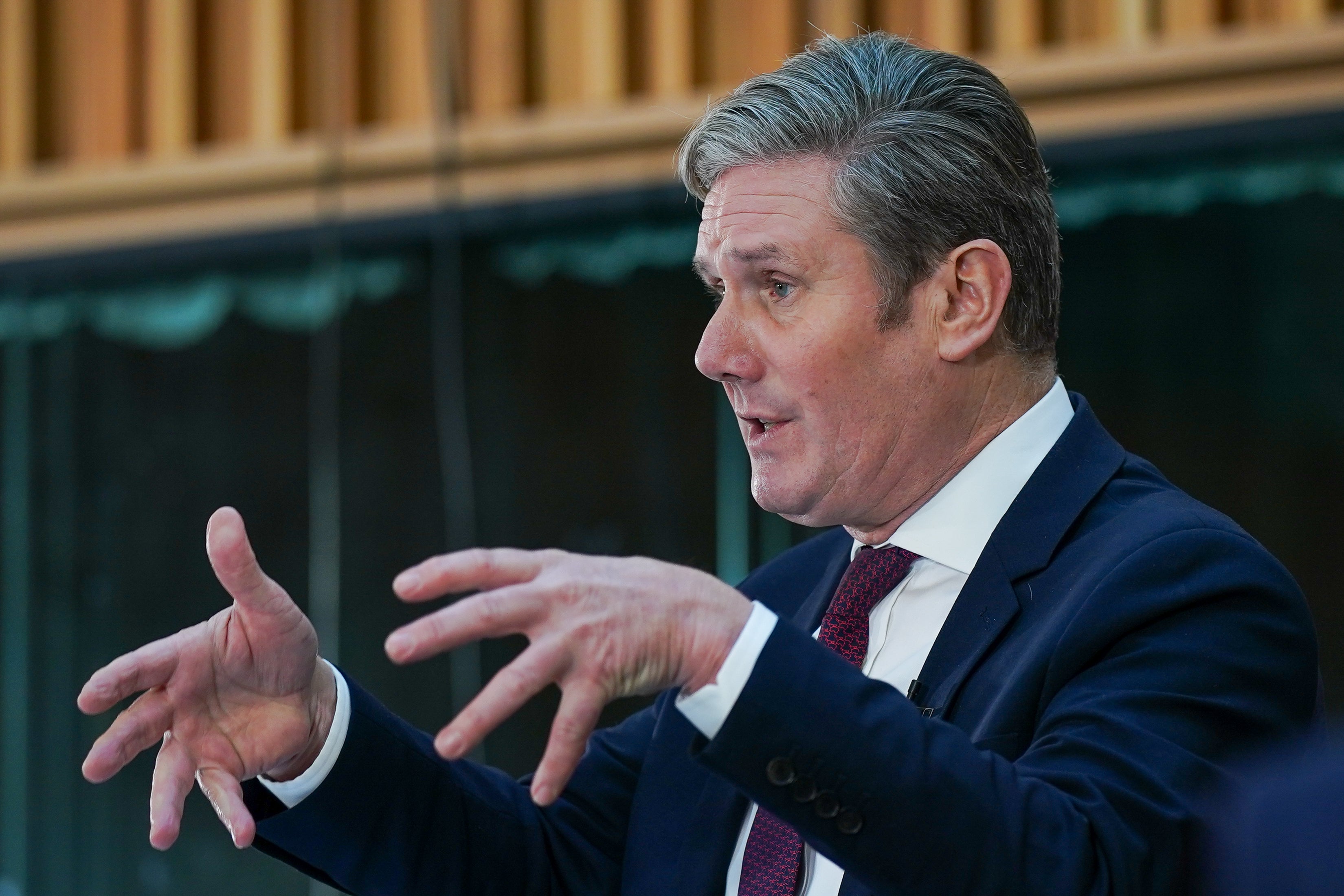Keir Starmer’s latest message on Brexit is nonsensical from an economic standpoint
It’s one thing to get Leave voters onside, quite another to buy into a narrative that doesn’t ring true, argues James Moore


A Labour-supporting friend and I were discussing Brexit and the latest frankly appalling comments on that subject from Sir Keir Starmer. There’s a clear strategy in place here, I was told, you have to remember it’s a journey.
The Labour leader kicked off a speech on democratic reform by saying he agreed with Leave voters’ “basic case”. He clarified that by talking about how he thought they “wanted more control over their lives” and “wanted more control over their country”. And OK, I suppose that’s understandable given his desire to turn the red wall red again and so on.
When he alluded to people in Scotland who voted yes to independence feeling the same thing about a remote Westminster, he was starting to push it. He was playing a dangerous game given the support for the EU there is in separatist-minded Scotland. But we’ll let that one pass for now because it was his comments on the economy in a BBC interview where things really started to unravel.
Asked on BBC Radio 4’s Today programme if membership of the single market would boost growth, he said: “No at this stage I don’t think it would. There is no case for going back to the EU or going back into the single market. I do think there’s a case for a better Brexit.”
Not only is that another demonstration of Starmer’s troubling tendency to buy into false narratives put about by the Tory right, it’s flat-out wrong. When I hear things like that, I find myself asking whether Starmer or any of his team have paid any attention to what has been happening to the country, to its floundering economy and to the plight of the people the Labour Party is supposed to care about.
You may have noticed food price inflation hitting 12 per cent or more, depending on which measure you use. There will be another one out this week from Kantar, which monitors supermarket prices, sales and market share. It is not going to look good. A “heat or eat” dilemma is slowly making its way up the income scale. For parts of Britain’s disabled community it is worse still: heat, eat or ventilate.
Why is food price inflation so high here? First off, it is worth remembering that we import a lot of it from the continent. This explains why Huw Pill, the chief economist of the Bank of England, said last week that Brexit “has probably reduced some of the competitive pressure in the goods market because it just is harder to import things into the UK from Europe ... that has probably proved to be somewhat inflationary”.
Now, it is true that Pill seemed to be chasing the probably prize as a warm-up to the caveat cup with his comments. He confirmed this when he was asked about Britain’s wider economic woes, and responded by saying: “Brexit plays a part, but I don’t think it’s the whole story and probably only part of the story. But to my mind it has had some effect.”
But what you have to remember is that this was an economist speaking. They find it hard to say anything without attaching some sort of caveat. Pill also works for the politically neutral Bank of England at a time when the mere mention of Brexit being something other than the ticket to paradise the Tories still laughably claim it as inevitably leads to cries of derision.
In reality, he was simply statin’ the bleedin’ obvious. If you voluntarily erect trade barriers and impose sanctions on yourself, of course your economy is going to suffer and of course prices are giong to rise for consumers. It goes without saying that when economies suffer, the most vulnerable suffer the most.
It is, at the very least, intellectually dishonest to state there is “no case” to rejoin the single market. When you consider that it would result in cheaper food and could therefore put breakfast on the table for hungry kids from low-income families – people Starmer’s party tells us it cares about – well you be the judge of the best adjective for what our would-be prime minister (if the current polls hold) said.
Another fairly grim consequence of Brexit is the way the government has been using it as an excuse to strip away perfectly sensible rules governing everything from the attachment of eyes to teddy bears so children don’t choke to the safety of workers on building sites.
The TUC and the Institute of Directors teamed up to pen a joint letter warning of the dangers in the Brexit Oppor-bleeurgh-tunities bill in response to that one. Needless to say, workers, whether on building sites or elsewhere, are also people Labour is supposed to care about.
Here’s the hard truth: you couldn’t make Brexit work. I couldn’t make Brexit work. Father Christmas and his reindeer couldn’t make Brexit work. Starmer is no different. About the best any of us could do is mitigate the damage. Given that he seems determined to prove the Scottish Nationalists right when they say he’s trying to out-Brexit the Tories, can he be trusted to do even that?
At best he might offer a slightly softer way of strangling the economy, perhaps throttling it with a silk scarf rather than a rope. Quite how he expects that to incentivise people to vote Labour is beyond me. It’s a strange sort of journey the Labour leader is on.
Join our commenting forum
Join thought-provoking conversations, follow other Independent readers and see their replies
Comments
Bookmark popover
Removed from bookmarks